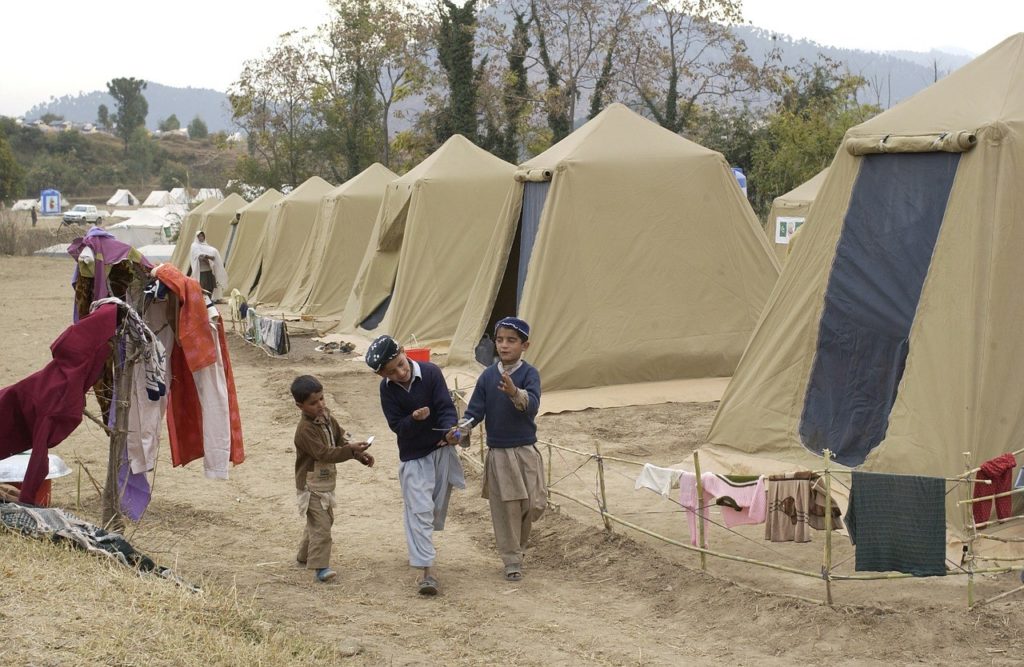BEIRUT – Triumphant Mercy Lebanon recently shared rising concerns about dangers being faced by displaced Syrians living in refugee camps in Lebanon.More than 1.5 million people have fled from the civil war that has raged in their home country since 2011.In mid-2015, the Lebanese government ceased registering displaced Syrians officially as refugees. Unregistered Syrian refugees have no legal right to work.

Except for assistance from NGOs and FBOs like Triumphant Mercy, these people are on their own when it comes to food, shelter, schooling, and healthcare. They live in the most meager conditions.
Efforts are underway to encourage, if not to eventually force, the refugees to return to Syria. Going home, however, may be worse for these innocent and unfortunate families. The likelihood that their home even exists any longer is relatively small.
To return would gain nothing for the refugees. They would face the rubble remaining from the ravages of war. Infrastructure and communication systems may be non-existent. Food, clean water, shelter, schools, and medical facilities would be just as hard to access as it is for them in Lebanon.
Triumphant Mercy and other NGOs are now participating in efforts to save refugees from a relatively new, but growing danger: trafficking. But the kind of trafficking they now face is organ trafficking.
Organ trafficking is a two-edged sword. On the one edge, parents fear to let their children out of their sight, lest they are abducted and forced to be donors. On the other, some men and women are so desperate for a source of income that they come under the spell of traffickers and become willing donors in return for relatively substantial amounts of cash.
Abducted children may never be returned. Volunteer donors are virtually abandoned once the coveted organ has been removed.
BBC News was able to obtain an interview with one of the scavenger middle-men who abduct children or convince others to become volunteers. Remarkably, the anonymous trafficker did not find it difficult to justify his work.
“Giving up an organ is nothing by comparison to the horrors they have already experienced.”
“I’m exploiting them, and they’re benefitting.”
“[My client] once asked for an eye, and I was able to acquire [someone] willing to sell his eye. I took a picture of the eye and sent it to the guys by WhatsApp for confirmation. I then delivered the donor.”
“I keep looking after them . . . until they remove the stitches. The moment they lose the stitches, we don’t care what happens to them.”
“I don’t really care if the [person] dies. I got what I wanted. It’s not my problem what happens next.”
“I know that what I am doing is illegal, but I am helping people.”
It is difficult to comprehend what people will do when they find themselves in a desperate situation. It is equally painful to understand how callous others can become when they see an opportunity to profit from the misfortune of others and to do so with such a depraved conscience.
A Triumphant Mercy field worker explained,
“Not only have you been displaced, not only do you have the pressure of life, not only do you not know what tomorrow holds, but you also don’t know if you’re going to be evicted from camp or not. You don’t know if you’re going to be able to go back to Syria or not, but also being afraid that your kids will disappear. That’s another trauma on top of everything else.”
Triumphant Mercy workers invest their time with the Syrian refugees to provide not only aid but also protection. First and foremost, they are present to share the love of Christ and that, because of Him, there is hope for tomorrow.
To read more news on Human Trafficking on Missions Box, go here.
Sources:
- Triumphant Mercy Lebanon, Is It Safe for Syrian Refugees to Head Home?
- BBC News, Meeting an organ trafficker who preys on Syrian refugees
- Reuters, Organ trafficking ‘booming’ in Lebanon as desperate Syrians sell kidneys, eyes: BBC
- Mission Network News, Lebanon: a new horror in Syrian refugee camps
- World Population Review, Lebanon




